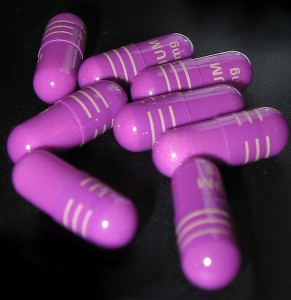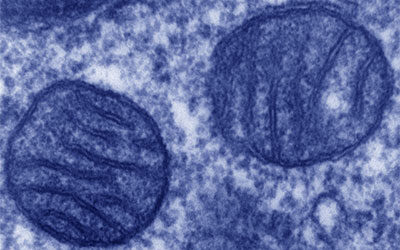 While it is generally agreed by all that Lyme Disease is caused by a spiral-shaped bacteria called Borrelia burgdorferi and several other co-infections, determining what medicine will work for your unique body is far from scientific.
While it is generally agreed by all that Lyme Disease is caused by a spiral-shaped bacteria called Borrelia burgdorferi and several other co-infections, determining what medicine will work for your unique body is far from scientific.
The reality is that as different as you look from any other person on the planet, your internal organs, tissues, and biochemistry is just as unique. It is this uniqueness that causes even aspirin to not work for everyone.
As a matter of fact, the supposed cardiovascular effects we are told that a baby aspirin provides, in reality only works for one-third of the people…sixty-six percent of the people taking aspirin for their heart are getting no effect.
While the effectiveness of aspirin is not our target today, it does demonstrate that what a person pays their doctor for is for the doctor’s best educated guess as to what will work for you.
In the world of Lyme disease, the prevailing medical thought is that one must first and foremost kill all of the bacteria. While clinical experience and laboratory proof have disproven this theory by demonstrating that no one, no matter what treatment regimen, have been found to be completely clear of all the bacteria, even though they may not have had any symptoms for years.
Unfortunately in Lyme disease, if the person being treated feels even worse after having been put on antibiotics, to the doctor this means the patient is taking the correct remedy. If this isn’t the most backward mentality I don’t know what is! The rationale here is that as one kills the bacteria that toxins are released, therefore causing more symptoms.
However, with natural medicine, such as herbal, homeopathic, or nutritional medicine, if the patient feels worse, to their physician it indicates that they are having an allergic reaction to the medicine.
What is a doctor supposed to do? A worsening of a patient’s condition very well could truthfully indicate that the medicine is harmful to the patient or it may be killing bacteria.
A certain number of doctors have decided that it is insufferable to continue the barbaric doling out of medicines haphazardly and they are learning newer ways to test the patient’s compatibility to the medicines before prescribing or recommending them.
As it is, without doing some of these new types of testing, no doctor can know with certainty that you won’t be allergic or sensitive to a medicine until you take it and have a reaction that is documented as one of the drug’s more common side effects.
It is like one of my favorite newspaper cartoons that pictured a doctor prescribing a medicine to a patient and telling him, “Take one of these pills…and if you wake up in the morning, take another!”
Thankfully very eloquent science exists that has led to the development of very sensitive frequency-based tests that can help eliminate some of the guesswork in doctoring.
These tests include Bio-Resonance Scanning (BRS), which is four generations beyond Applied Kinesiology (AK), another is called Autonomic Response Testing (ART), Clinical Kinesiology (CK), and Electro-Dermal Screening (EDS).
Physician training in performing these tests are offered in the post-graduate training that every doctor is required to keep up on in order to maintain their license. The only reason any doctor would opt to learn this unique form of testing is so they can stop the guessing! I guarantee it doesn’t take too many patients dying from the medication a doctor gives them to make the doctor want to learn a better way!
The reality is that the only doctor who will be able to do these unique tests is one who works outside of a hospital, since the hospitals and the hospital insurance companies dictate what their doctors can and cannot do in the way of testing and treatments.
Another attribute of these doctors is that they are unique in that they can swallow their pride with their peers and separate themselves from the pack and admit the system is not working very well.
These tests can help identify with much great accuracy not only if a medicine will cause a problem in the patient…but they can determine the fact before they have even taken the medicine.
The more advanced testing techniques such as BRS and ART can even help determine which medicine is the most effective for the patient, how much is needed, and even go as far as how much will be tolerated, which in sensitive people can help eliminate problems from the need being so great, but the tolerance of the medicine being so low.
If you feel like your doctor is just guessing with your health at your expense, you might want to find one who can think outside the box and is willing to test you with one of these new testing techniques.

Pill photo: licensed under a Creative Commons Attribution-ShareAlike 3.0 Unported License










Actually, the Natural Practitioner I saw would disagree – she very clearly stated to me that “the body has to go backwards through the process to get well…to expect to feel worse before feeling better…that feeling worses means the tinctures etc were working….
Dr.J,
These systems mentioned are by no means perfect. I have had an instructors/founder of one of these systems totally miss very root health issues of mine.
If these systems were so good they would submit themselves to testing and publish their research. To my knowledge, not one of those systems has scientifically proven that they are accurate.
I wish they were,,,, but wishing is not enough.